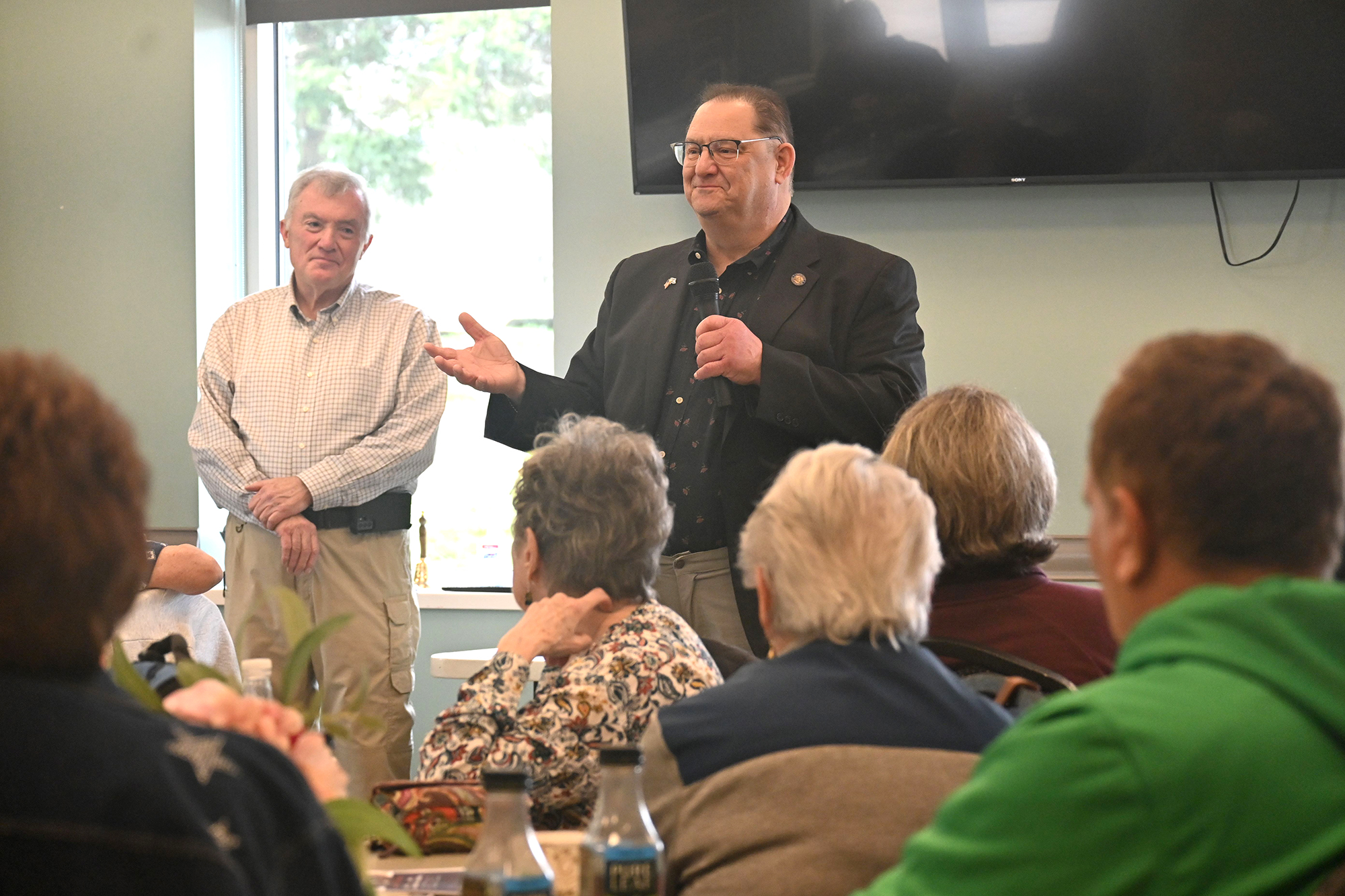

Newtown, Conn. — Dozens of Newtown seniors attended a Pizza & Policy event on Friday with state Representatives Mitch Bolinsky (R-106) and Marty Foncello (R-107). About 45 people listened to the pair discuss work to date during the 2024 legislative session. The legislators then took questions from the attendees, ranging from senior housing to tax relief.
Most of the concerns expressed by seniors centered around the ability to age in place with appropriate services available, reliably and affordably. Bolinsky, ranking member of the Legislature’s Aging Committee, said he and his colleagues are working on two priority bills this session, one with the governor to increase quality and accountability in nursing home settings, and the other with the Speaker of the House that is focused on supporting aging-in place, as the overwhelming preference of Connecticut’s senior population.
Bolinsky noted that the state doesn’t actually control housing supply through construction, and expressed that one idea being discussed among his committee, the Governor’s and Speaker’s offices, is one to incentivize conversion and repurposing of existing long-term care buildings to independent-living communities. He reasoned, “with the preference and movement of residents to an aging-in-place lifestyle, the state can enable municipalities, help expedite the permitting process, and provide incentives for projects of this, and similar kinds without interfering in local zoning decisions. The average vacancy rate in nursing homes is 30%,” said Bolinsky. “The time to pivot to the home care model is here. We need affordable living options now, and have proposed two regional trial programs to redirect more costly, traditional aging resources into subsidizing or bonding-assistance to retrofit and convert increasingly underutilized, existing facilities.
Bolinsky noted that the test markets are likely to be trialed in less-densely populated, lower cost of living area than that of Fairfield County.
Foncello told the audience that they are trying to set up state laws as best they can without dictating to towns how to set up senior housing.
“Each town is different and has their own plan of development. It would be nice if there were areas where you could live, walk to the pharmacy or the ice cream counter and grab a snack, and go to recreate,” said Foncello.
Bolinsky also spoke about Newtown’s recent securing of a state historical designation for Fairfield Hills. “I was happy to learn that the state recognizes the architectural and historical significance of the entirety of Fairfield Hills’ campus. With the commission’s formal designation, Newtown can now apply for a National Historic Designation, which will qualify the town for federal historic preservation tax credits at such time as it may consider possible remediation and redevelopment proposals. If any proposal were to move forward, these credits could save Newtown taxpayers tens-of-millions of dollars in preservation, environmental or demolition costs.
Attendees also expressed concerns about the high cost of living, and their tax burden.
“I was pleased to be able to help relieve that burden through the bipartisan budget deal passed last session. We agreed to an expansion of the state’s existing deductions for certain IRA distributions and pension and annuity earnings to benefit seniors,” said Foncello. “The retirement income tax cliff is being eliminated by adding a phase-out for allowable pension and annuity and IRA distribution deductions against the personal income tax.”
It’s estimated that an additional 100,000 filers could benefit from the elimination of the retirement cliff via the exemption phase-out.
Bolinsky and Foncello provided attendees with pizza, information about available state resources, and contact information.
